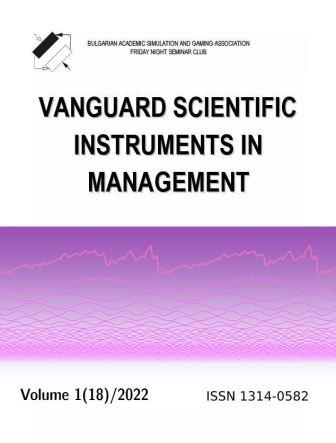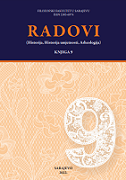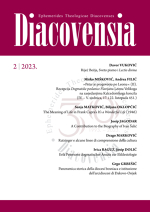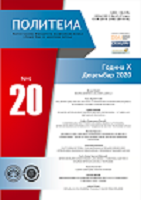Intracompany Statement of Gains from Sale of Products – a Source of Information for the Analysis of the Performance of Enterprise’s Principal Activity
Author(s): Rosica Ivanova / Language(s): English
/ Issue: 18/2022
Keywords: financial performance; full cost; analysis; return of sales; methodology
In general, the biggest share of the industrial enterprises’ profit is generated by the gains from sale of products. This makes the methodology for analysis of the gains from sale of products and its importance at all phases and stages of the development of enterprises that carry out industrial principal activity a question of interest.The statement of gains from sale of products is prepared on the basis of the accounting and operational information generated in the enterprise. The data in this statement are used to analyze.1) The financial performance (profit, loss) from sale of products.2) Full cost per production of BGN 100 (cost per sales of BGN 100).3) Rate of return calculated on the basis of net sales (return of sales).The analysis identifies and measures the strength and direction of direct factors’ impact on the changes that have occurred in the financial performance as a result of the sale of products, the cost per sales of BGN 100 and the return of sales.Thus the intracompany statement of gains from sale of products is considered a source of information not only for the analysis of the gains from sale of products but also for the analysis of the effectiveness of the industrial enterprise’s principal activity. The indicator of cost per sales of BGN 100 characterizes the cost-revenue type of effectiveness, and the indicator of return of sale – the aggregate effectiveness of the enterprise’s principal activity.The object of this publication refers to the matters relevant to the information provision for the analysis of the industrial enterprises’ gains, or losses from sale of products, respectively, and of the effectiveness of their principal activity.The subject matter of the study covers the methodologies for analysis of gains, or losses from sale of products, respectively, the cost per sales of BGN 100, and the return of sales.The author’s aim is to improve the methodologies for analysis of gains, or losses from sale of products, respectively, the cost per sales of BGN 100, and the return of sales on the basis of the information contained in the industrial enterprises’ intracompany statement of grains from sale of products.For the purposes of achieving the above aim, the author of this publication has two problems to solve:1) To clarify the information provision for the analysis with view of the preparation of the intracompany statement of gains from sale of products.2) To outline some guidelines for improvement of the methodologies for analysis of gains from sale of products, the cost per sales of BGN 100, and the return of sales.These problems can be solved by using various methods of scientific knowledge, for example: induction and deduction, analysis and synthesis, as well as appropriate elements of the financial and business analysis method – the methods of comparison, adjustment of indicators, successive substitution, etc.Different approaches have been applied for the purposes of this study: historic, logic, systemic, complex, etc.
More...




